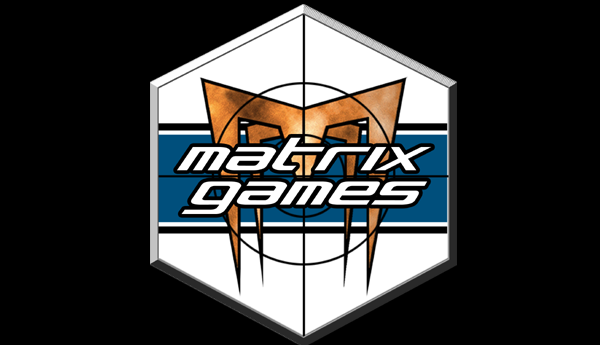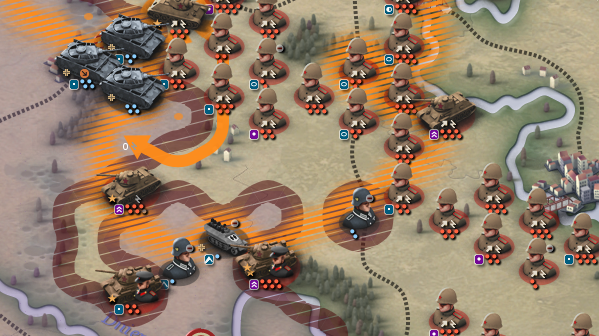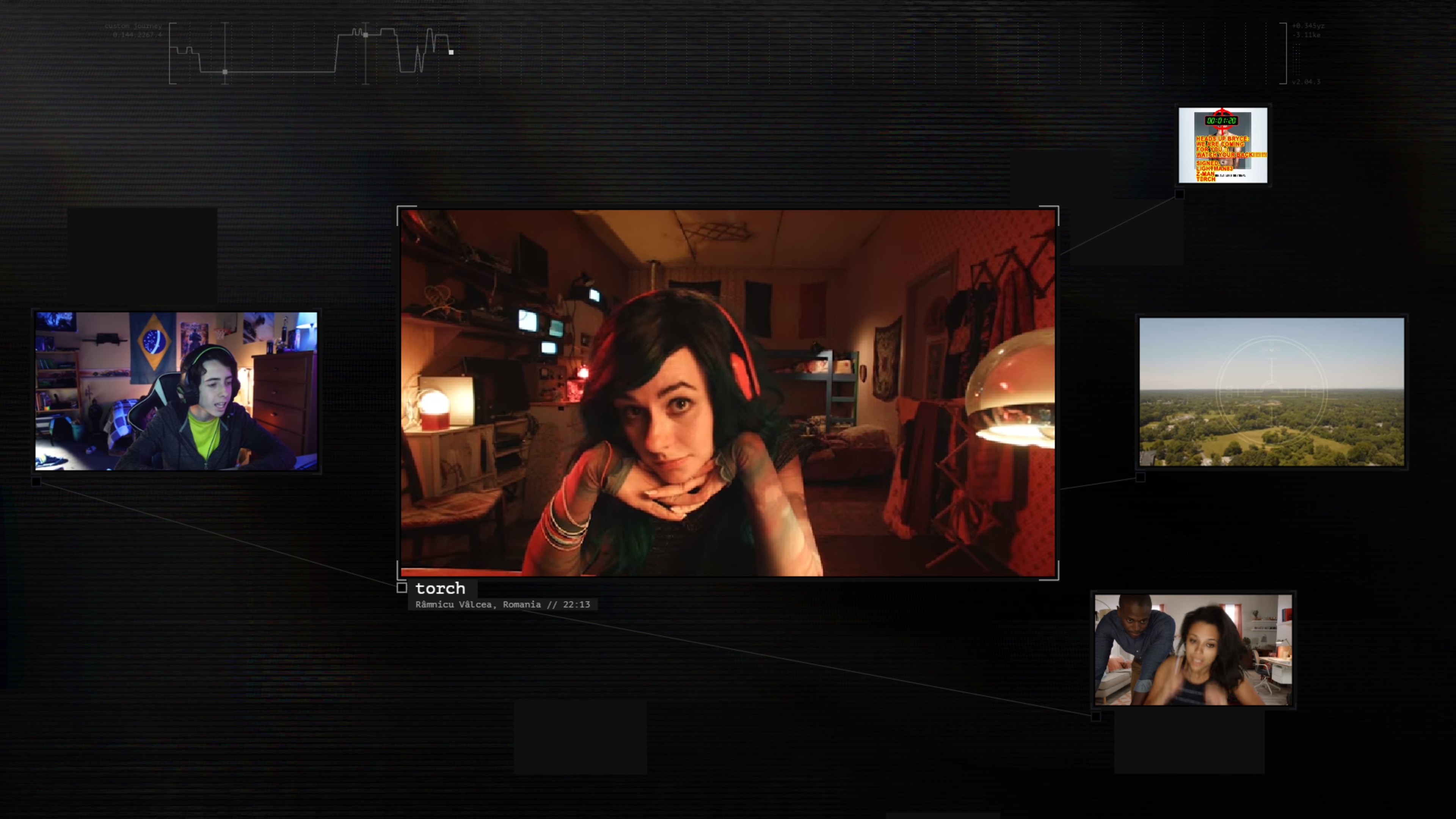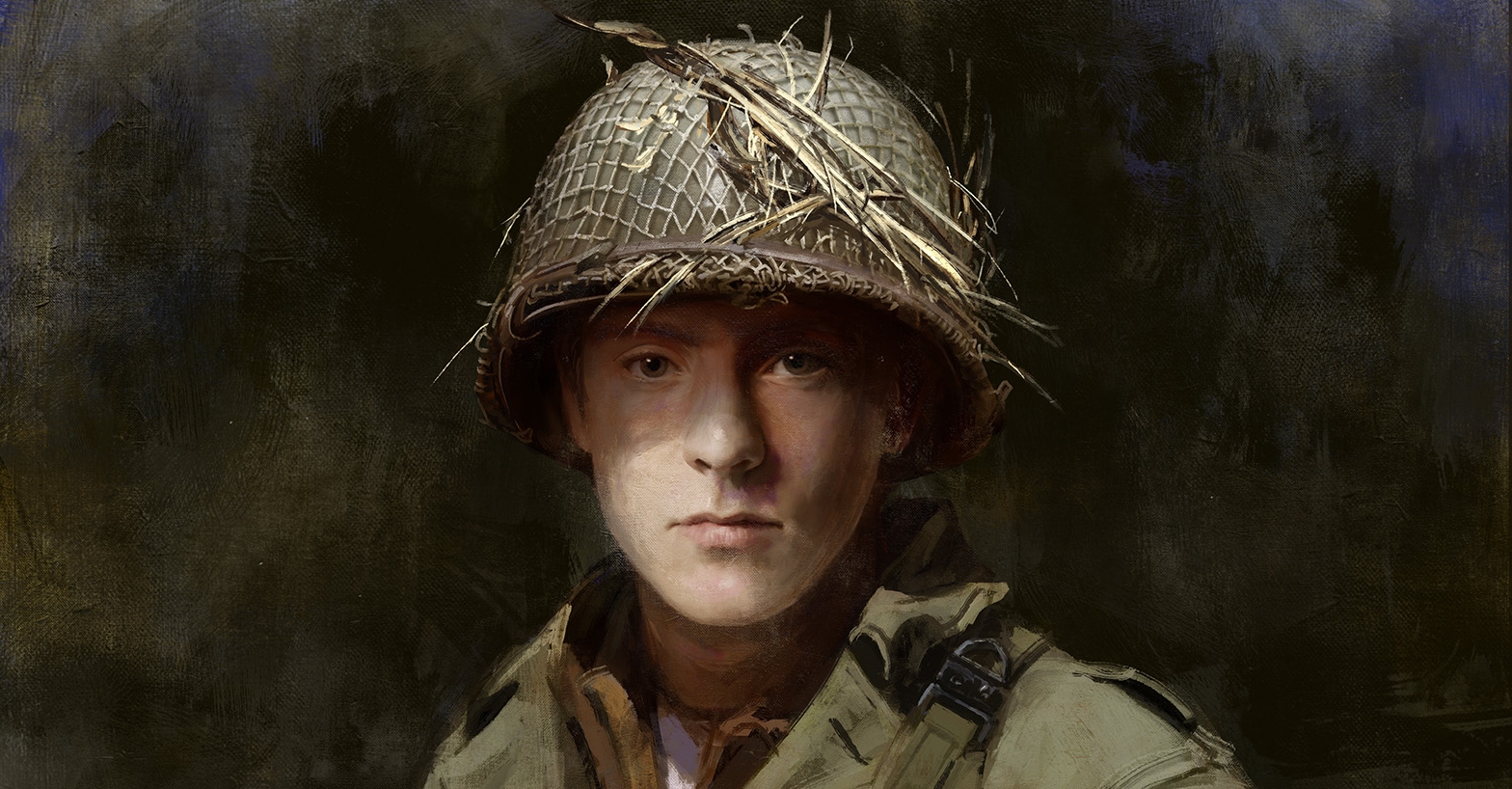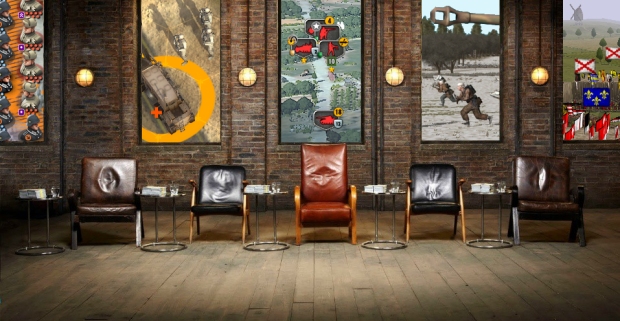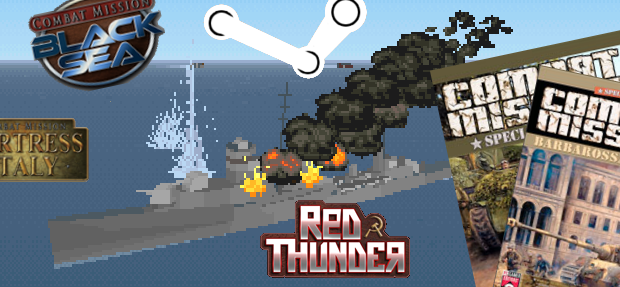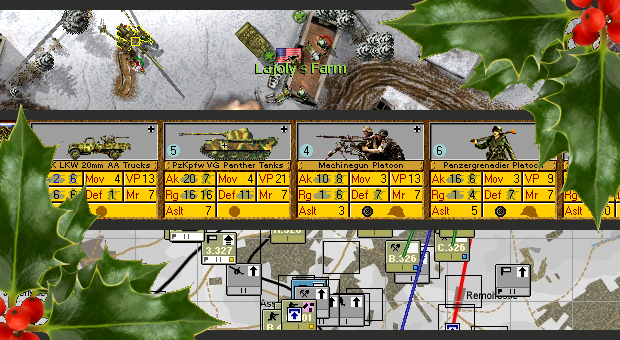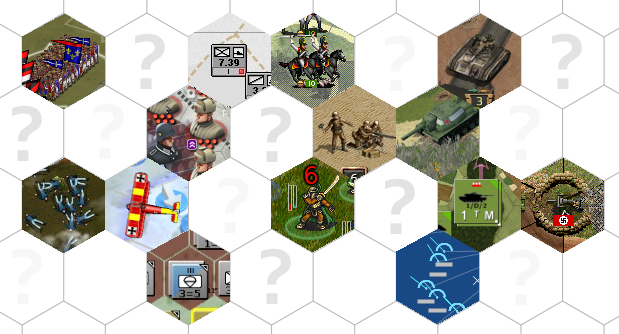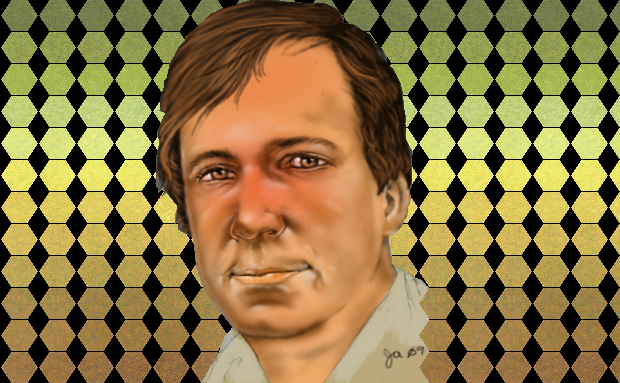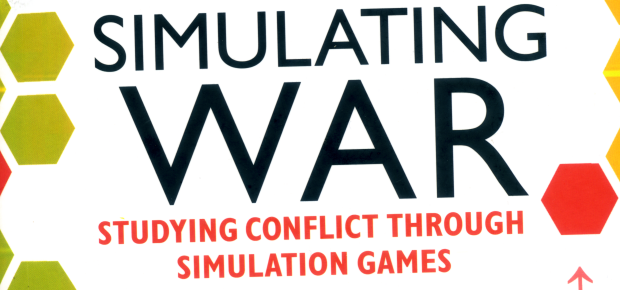The Flare Path: Parleys With A Warlord
Simulation & wargame news
Every day is D-Day -1 for the busy Seabees at Slitherine Software. An Epsom-based outfit that started life constructing singular sword-and-sandal TBSs, is now, thanks to a slew of acquisitions and a dazzlingly dynamic approach to talent spotting/signing, the dominant force in PC wargame publishing. During the coming year, company chieftain Iain McNeil will be overseeing more than fifty releases. Realising I knew little about the firm's founder, philosophy, or plans, I dragged Iain away from a red-hot field radio and a sand table crowded with 15mm Hoplites, Panzer Grenadiers, astronauts and Space Marines for a chat.
RPS: Do you recall your first taste of wargaming?
Iain: Yes very clearly - I was 6 years old and went to a model engineering exhibition in London. It was mostly railways but I was more interested in a table with a wargame going on. My dad bought some toy soldiers at the show and we painted them up and joined a wargames club. I’ve been a hardcore wargamer pretty much since then. At 11 I won the club competition and since then have taken part in almost every tabletop competition that exists, though since I had kids have been forced into temporary retirement. I started computer gaming a little later but got hooked on games like Dungeon Master, Railroad Tycoon, Masters of Orion and Civilization. I still have my copy of MOO2 and boot it up from time to time as there is still nothing that compares!
RPS: Dune 2000, Deus Ex, Urban Chaos... Pre-Slitherine, you were involved in the creation of several well-known games. Were any of these projects especially formative?
Iain: I started out in development at Intelligent Games about 20 years ago now. My first job was as a tester, then production assistant and finally on to team leader & designer. I have worked at every level in a game development company and it gives really useful insights and helps me manage the teams. I worked on Red Alert Aftermath & Retaliation, but the games I was most involved with and were most formative for me were Dune 2000 and Dune Emperor. On these I was the designer and team leader. Dune 2000 involved month after month of long hours and changing goals from a publisher. It was very frustrating and by the end of it I was burned out. I stayed long enough to set up the design of the sequel, Dune Emperor, but needed a change of pace. I decided to try out life on the publisher side.
I joined Eidos as a producer and worked on Deus Ex, Urban Chaos and some others. However it was very unrewarding. There can be a real tension between the developers and the publisher. The developer wants to do things their way while the publisher may want it another. I’d experienced it from the developer side with a publisher enforcing their ideas on us but hadn’t expected to have so little input and control from the publisher side. I found the internal politics of these large companies got in the way of doing the job well and after a year decided I wanted to get back to the action and into development at a smaller focused team. This is when Slitherine was born. While I didn’t enjoy much of the work at Eidos, the experience of dealing with this conflict between developer and publisher from both sides has been invaluable. It really helps me see things from both sides and find common ground.
RPS: Was Slitherine a happy accident or the result of years of planning and dreaming?
Iain: It was definitely more of an accident. Slitherine technically existed before I got involved but in a very different form. It all started when I was the producer at Eidos on Tyrannosaurus Tex, a 3D first-person shooter for Gameboy Colour. Slitherine was the developer and while talented at game development they clearly had no idea how to run a company. I was frustrated as a producer and wanted to get back to development. The plan was to form a new company with Ben, the lead developer on the T-Tex team and take things from there, but it wasn’t to be and fell at the first hurdle. After the initial payments had been made I was due to meet Ben and sign the documents that would give him a 50% share in the new company. When I arrived at the office he wasn’t there. After some time his girlfriend arrived and told me he was on a plane to Australia and wasn’t coming back. He had had some kind of mental breakdown and had taken his computer and run. This is the short version as it was a lot more complex than that, but the end result was we had a company, but it was a hollow shell. We had the source code, but the only person who understood it was in Australia and as it was all written in assembler it was not the kind of thing someone else could pick up. We had to think about what to do next. The obvious decision was to make games that we understood. At the time we were talking to Games Workshop about a license and we made a prototype for a game, but they signed all rights to THQ so that never happened. Instead the prototype evolved in to what is now Legion. I also taught myself how to program at this point, though my code luckily only got used for editors and supporting tools - not the game itself.
RPS: Wargame devs seem to be flocking to Slitherine at the moment. What's the secret?
Iain: It is true that we have so many developers coming to us for exclusive deals we have had to stop offering distribution deals as we simply don’t have the bandwidth to release all the games being offered to us and must focus our resources on our exclusive developers. I think the simple answer is that developer’s make more money releasing games through us than they can anywhere else. While we have great relationships with our developers, most of our games are developed by small indie companies and they are all looking for the best possible deal for themselves. They don’t come to us and stay with us because of some sense of loyalty. They come and stay because it’s the best place for them to be financially. There are a few key reasons for this
Our community. We have ¼ million unique users through our sites a month and they are all wargamers. There is nowhere else on earth you can get such a concentrated group of wargamers. We have developers who have tried to sell via GoG, GamersGate, Desura etc but we sell more of these type of games on our site than the rest put together. When we told them we were not doing distribution deals any more, only exclusive publishing deals, they decided it was better to go exclusively with us than try and sell through the multiple store fronts.
Our services. Obviously we promote, market and support the games, but it’s much more than that. We get involved as early as possible to help steer the developer in the right direction. We help them avoid various pitfalls, help them with UI design and provide tools for lobbies, server based PBEM, match making and much more. One recent example is a game that was submitted to us for publishing which looked very promising on the surface until we found out it had no single player mode, not even a tutorial and had no asynchronous multiplayer. These two design decisions in our view are fatal to the games chances of success. A simple design decision 18 months ago could have changed this in to a very interesting game. They are reviewing if it’s worth 6-9 months of rework to fix these issues, or to release the game as is, but unless the core design issues are resolved it is not a game we could get behind.
Legal Advice. You would not believe the number of developers who come to us with no legal structure in place and a game that is almost finished. We’ve helped advise on company structure, prepare template contracts for employees and contractors and much more. This is something we try to make sure is in place as early as possible after we get involved. A piece of advice to any developers out there: please agree on day 1 what everyone is due to get in the way of shares and revenue from the project/company and set it out on paper in a contract. If you don’t then everyone goes away with different assumptions and memories of what went on and these inevitably lead to problems and often a complete team break down, which we have witnessed on multiple occasions. We matchmake artists and programmers and set up contracts and report royalties to all parties so no paperwork is needed by the dev teams allowing them to focus on what they do best – make the games.
Funding. On many projects we help fund the developers to complete the games. This takes various forms including paying for music or art to complete the game, license fees, engine fees and monthly milestones. The truth is many of the games simply would not exist without the funding or would be substantially worse in quality.
With the move from retail to digital there is a lot of talk of developers going it alone and not needing publishers. What we’re finding is almost the exact opposite. While digital means infinite shelf space (a phrase I often see thrown about on forums), it is a curse as well as a blessing. There are literally hundreds of thousands of games available now. Getting users to find your game amongst the multitude of others can be almost impossible. This makes visibility the key issue and this is one thing developers really struggle to deal with. When you release 1-2 games a year it’s impossible to generate the momentum that a publisher releasing 1 game a week can. Many try to go it alone and realize it just doesn’t work and this is one of the reasons we’re seeing a huge increase in developers wanting to work with us. Success in the digital space is about 3 things – visibility, visibility and visibility.
RPS: The Matrix Games takeover in 2010 was obviously an important step. Is there any truth in the rumour that Matrix were struggling at the time of acquisition?
Iain: No - Matrix have always made great games and have a huge dedicated community. Both Matrix & Slitherine had particular strengths and weaknesses and together we are a much stronger company.
RPS: How does Wargamer.com fit into Slitherine's plans?(Wargamer.com is owned and overseen by Slitherine Group)
Iain: The Wargamer is one of the only dedicated sites to cover the type of games we make so it’s very important to us that it reaches as many people as possible – old and new readers. It is one of the best places for developers to promote and advertise these type of games.
RPS: Has the recent success of your mobile games had any impact on the PC side of the business?
Iain: It is hard to say for sure. We’ve seen a 44% increase in sales on PC and Mac in 2012 but it’s very hard to say if this is down to the iPad and the awareness it has raised outside of our core community or other reasons such as our console games, or other marketing initiatives and releases.
RPS: If the option came along to buy Battlefront or HPS Simulations would Slitherine be interested?
Iain: Battlefront and HPS are both great competitors, but at the moment we need to focus on our Buzz Aldrin and Games Workshop deals, as we see these as great ways to expand our audience. It’s interesting that you listed these two companies, because we don’t see ourselves as only competing with digital wargames companies. We see ourselves as part of the wargames industry, rather than the games industry. By that I mean wargaming in all its forms, digital, tabletop, board games, re-enactors, modelers, history buffs etc. Many of your readers are probably unaware that we publish 3 sets of tabletop wargames rules and have published over 25 books in 5 languages. Matrix in the past has also published board games and we’re in discussions with board game manufacturers on some possible projects now. We attend shows like Speil in Essen (boardgames), Salute in London (tabletop miniatures) and Historicon in the USA (tabletop miniatures) in preference to shows like E3. While these board and tabletop gamers also play computer games they do not read the mainstream gaming media and so we can’t reach them through traditional channels. Even though we’ve been attending these shows for over a decade, we still regularly meet people who have never heard of us and when they see the lineup they think they have found heaven. What we have find is that once you’ve made these guys aware of us, they keep coming back for more.
RPS: Assuming money was no object and all present owners were willing to sell, which classic wargaming IP would you most like to acquire?
Iain: There are so many things I’d love to do ranging from the entry level strategy games up to the grognard's heaven. I’d love to do Advanced Squad Leader, Axis & Allies, Railroad Tycoon (like it was meant to be played, none of this eye candy without substance! ;), Masters of Orion, the list goes on!
RPS: Your release schedule for the next twelve months is pretty crowded. Which projects are you most excited about?
Iain: It certainly is – we have more than 1 release a week which is something we’re struggling to keep up with and have had to take on more staff to deal with this. The projects I’m most excited about are Panzer Corps on iPad, Buzz Aldrin’s Space Program Manager, Pandora, and our Warhammer 40,000 game. There are others I can’t talk about yet, but we have some more big releases coming later this year or early next year.
RPS: What's the biggest challenge facing the company in the next year or two?
Iain: Our biggest issue is dealing with growth. We’ve grown from a company of 5 to over 25 in the last 5 years. Despite this we’re still heavily understaffed and recruiting, but we have to be very careful at the pace we grow as new team members are a drain initially as they are trained and brought up to speed. We have to balance keeping the company moving ahead with adding more team members. We’re having to adapt the way we do everything to deal with this growth and it’s a painful process. For example, when there are 5 of you in one office, everyone knows everything. Now there are so many of us spread across 5 offices and there is so much going on, there is no way for anyone to know everything. We’re having to create processes and systems just to keep the team up to date. We’ve had occasions when the first someone finds out about a new signing or piece of news is when they read it in a press release on another site which is clearly unacceptable!
RPS: I suspect that PC wargaming 'nicheness' - its relative lack of popularity - has more to do with poor GUIs, inadequate tutorials, and limited exposure, than themes or complexity. Would you agree?
Iain: Though this is an opinion shared by many wargamers, I have to completely disagree on this point. It is related to the misconception that by dropping the prices you can massively increase sales. It is true there are many wargames with terrible user interfaces but there are also examples of games with great UI’s, e.g. Panzer Corps and Unity of Command. They are not perfect, but they certainly have no barriers to entry. You could always make them better, but the increase in sales relative to the amount of money invested hits a plateau. There is simply a limited number of people who are interested in this type of game.
This interesting story posted to our site by a user named Vasquez illustrates the point:
“One year ago a retail gaming store (in germany) announced their cessation of business. They had offered a half dozen boxed Version of Battles in Italy (German retail Version) for 1 (one) Euro each. One months later they had not sold one of them. So I bought them all and made a giveaway on my gaming site. We have some wargamers over there, yes, but the majority are shooter fans (since 7idGaming is focused on e-sports and we are hosting servers for ArmaII and such games). Anyway. In short: No one wanted Battles in Italy. Neither for 1 Euro nor for free.
Some weeks ago a friend gave me five GamersGate keys for an almost brand new wargame. So I announced a contest again. The only requirement was to like the developers Facebook site. My article had 280 hits but only three guys were interested enough to like the page for a free copy.”
The price alone does not turn average Jon Doe into a wargamer.
Having said this, just because it has a limited audience it does not mean that audience is small. For example Games Workshop’s core business is that they make toy soldiers. I don’t think you could argue this is anything other than a niche business – I know they certainly don’t. However they have a market capitalization approaching $350m. We know we have come nowhere near the potential of our audience, but it is very fragmented and there is no single place to market to these gamers. It’s a gradual process of making games that will appeal to them on platforms they use, organically growing the audience and finding innovative marketing initiatives to reach them.
RPS: Do you know what percentage of your customer base would, if given a choice, rather see a strong single-player AI in a wargame than extensive multiplayer facilities?
Iain: It varies by game, but on average I’d estimate somewhere between 90-99% of players are only interested in single player. AI is important here, but at least equally important is a campaign layer to the game. Games without a strong single player experience often struggle to sell. There are always exceptions to the rule, but this would be my advice to any developer – make sure you have a strong single player experience and design the multiplayer to enhance that rather than start from multiplayer.
RPS: The debate over the pricing of Pride of Nations generated some interesting comments. Do you really believe there's a direct link between the price of a wargame and the likelihood of it being valued or penetrated by a customer?
Iain: It’s pretty basic psychology that the more you pay for something the more you value it and that people expect higher value items to be of higher quality. It is one of the main reasons brands exist – we all know many of them use the same products just with a brand logo, or “premium” logo to make people feel better about buying them. There are other factors in effect such as marketing, but a key factor is that people do value things more if they pay more. Think about what happens when someone plays a complex game. What happens when they hit a frustration point such as a badly explained feature or something they don’t understand? Ideally the game would be designed not to have these frustration points but invariably complex games do. In the case where the game was free or very cheap a significant % will give up and stop playing. They invested nothing so they lose nothing. That same person playing the same game which they had paid $25 for is much more likely to attempt to push through the frustration point because of their investment. They don’t want to feel it was wasted. Now obviously this is not universally true but it certainly changes the average level of customer satisfaction. The other point is that if you sell a game for $1.99 it says to me that you are not confident in your game and do not believe it has value. If you don’t believe it has value why should I?
RPS: Thank you for your time.
The Flare Path Foxer
Is this an F-102 Delta Dagger which I see before me? No, it's a Hawker Tempest, a Douglas C-124 Globemaster II, a Learjet, a General Aircraft Hotspur, a Vickers Windsor, a Westland Lysander and a Rolls Royce Avon engine. Watching FurryLippedSquid, Matchstick, and skink74 tear through last week's Shakespearian foxer was like watching Falstaff eat warm pigeon pie. Textbook defoxing. Never have pairs of foil-and-silk FP undercrackers gone to more deserving nether regions.
Spot today's covert connection and you could win a delicious meal for two at Flare Path's favourite restaurant, The Gammon Bomb.








